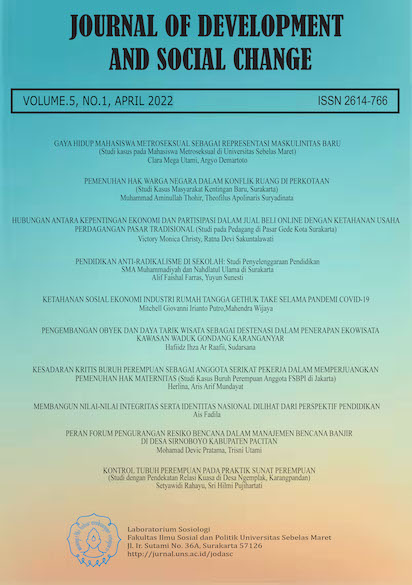PUDARNYA BUDAYA SOPAN SANTUN MASYARAKAT INDONESIA DALAM MENGEMUKAKAN PENDAPAT DI MEDIA SOSIAL
Abstract
Indonesia is well-known as a country known for its culture of courtesy. But along with the times, the culture seems to be fading, especially on social media. Therefore, the researcher wants to know the causes of the loss of the culture of courtesy and reveal how social media affects the politeness of the Indonesian people in expressing opinions. The method used in this study is a qualitative method with data collection techniques through surveys and literature studies. Through the research conducted, researchers found that the Indonesian people ignore the aspects of courtesy in expressing opinions on social media due to several factors, including anonymity, the bias in the notion of freedom of opinion, exemption of personal problems in the real world, and the absence of specific regulations governing limitations in having opinion on social media. Social media has a significant effect on changing attitudes and views of Indonesian society towards the concept of courtesy and courtesy in expressing opinions. Researchers found that there is a double standard in the definition of polite in social media and the real world. Researchers hope that this research can add insight and become material for community consideration in expressing their opinions on social media and the real world.
Full Text:
PDFReferences
Asosiasi Penyelenggara Jasa Internet Indonesia. 2019. Survei APJII: 49% Pengguna Internet Pernah Dirisak Di Medsos. Diakses 10 November 2019. (https://databoks.katadata.co.id/datapublish/2019/05/16/survei-apjii-49-pengguna-internet-pernah-dirisak-di-medsos).
Darmawan, I, dan Lalu Muhaimi. 2020. Dysphemism Lexical Items of Hate Speeches: Towards Education of Students for Political Correctness.
https://doi.org/10.2991/assehr.k.200827.061.
Dittipidsiber. 2019. Statistik : Jumlah Laporan Polisi yang Dibuat Masyarakat.
Diakses 09 November 2020 (https://patrolisiber.id/statistic)
Febriyani, Meri. 2018. ANALISIS FAKTOR PENYEBAB PELAKU MELAKUKAN UJARAN KEBENCIAN (HATE SPEECH) DALAM MEDIA SOSIAL, Jurnal tidak dipublikasikan. Fakultas Hukum, Universitas Bandar Lampung, Bandar Lampung.
Ihsanuddin. 2016. “Jokowi Prihatin Masyarakat Saling Hujat Di Media Sosial,” Kompas, November 9. (https://nasional.kompas.com/read/2016/11/09/11245931/jokowi.lagi-lagi.kritisi.pengguna.medsos.yang.saling.cela.dan.hujat?page=all).
Medistiara, Yulida. 2017. “Selama 2017 Polri Tangani 3.325 Kasus Ujaran Kebencian,” Detik.com, December 29.
Retrieved November 11, 2020
(https://news.detik.com/berita/d-3790973/selama-2017-polri-tangani-3325-kasus-ujaran-kebencian).
Nasution, Latipah. 2020. Hak Kebebasan Berpendapat dan Berekspresi dalam Ruang Publik di Era Digital. Diakses 4 November 2020 (http://journal.uinjkt.ac.id/index.php/adalah/article/view/16200/7461)
SAFEnet. 2018. Jalan Terjal Memperjuangkan Hak-Hak Digital. Diakses 09
November 2020 (https://safenet.or.id/wp-content/uploads/2019/06/Laporan-Tahunan-SAFEnet-2018.pdf)
Smith, Peter. 2016. Bullying: Definition, Types, Causes, Consequences and Intervention: Bullying, Social and Personality Psychology Compass, Vol. 10, Tahun 2016, P. 519–32. https://doi.org/10.1111/spc3.12266.
Tim CNN Indonesia. 2019. “Memahami Makna Jejak Digital Bagi Pengakses Internet,” CNN Indonesia, February 18.
Retrieved November 10, 2020
(https://www.cnnindonesia.com/teknologi/20190208152351-185-367497/memahami-makna-jejak-digital-bagi-pengakses-internet).
UNICEF Indonesia. 2020. Cyberbullying: What Is It and How to Stop It. Diakses 10 November 2020 (https://www.unicef.org/indonesia/id/child-protection/apa-itu-cyberbullying).
DOI: https://doi.org/10.20961/jodasc.v4i1.45609
Refbacks
- There are currently no refbacks.




